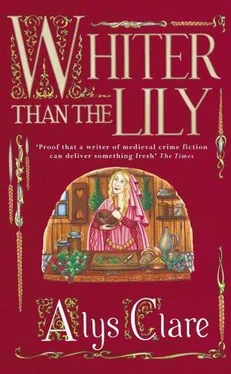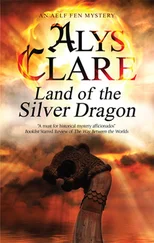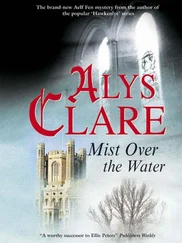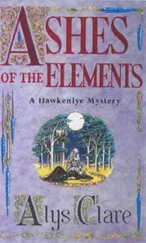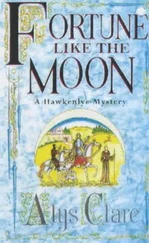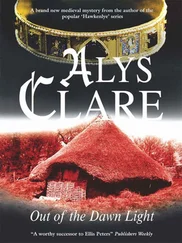Alys Clare - Whiter than the Lily
Здесь есть возможность читать онлайн «Alys Clare - Whiter than the Lily» весь текст электронной книги совершенно бесплатно (целиком полную версию без сокращений). В некоторых случаях можно слушать аудио, скачать через торрент в формате fb2 и присутствует краткое содержание. Год выпуска: 2011, ISBN: 2011, Издательство: Hachette Littlehampton, Жанр: Исторический детектив, на английском языке. Описание произведения, (предисловие) а так же отзывы посетителей доступны на портале библиотеки ЛибКат.
- Название:Whiter than the Lily
- Автор:
- Издательство:Hachette Littlehampton
- Жанр:
- Год:2011
- ISBN:9781444726688
- Рейтинг книги:3 / 5. Голосов: 1
-
Избранное:Добавить в избранное
- Отзывы:
-
Ваша оценка:
- 60
- 1
- 2
- 3
- 4
- 5
Whiter than the Lily: краткое содержание, описание и аннотация
Предлагаем к чтению аннотацию, описание, краткое содержание или предисловие (зависит от того, что написал сам автор книги «Whiter than the Lily»). Если вы не нашли необходимую информацию о книге — напишите в комментариях, мы постараемся отыскать её.
Whiter than the Lily — читать онлайн бесплатно полную книгу (весь текст) целиком
Ниже представлен текст книги, разбитый по страницам. Система сохранения места последней прочитанной страницы, позволяет с удобством читать онлайн бесплатно книгу «Whiter than the Lily», без необходимости каждый раз заново искать на чём Вы остановились. Поставьте закладку, и сможете в любой момент перейти на страницу, на которой закончили чтение.
Интервал:
Закладка:
Galiena’s father was called Raelf and his manor was at Readingbrooke. Pressed for further details, Ambrose would only say that Raelf’s wife was named Audra and that there were four other daughters all younger than Galiena.
It was to this unsuspecting and, according to Ambrose, close-knit and loving family that Josse was now bound with such terrible news.
Despite the fine weather and the beauties of the June countryside, he could not find the smallest element of pleasure in the day.
He rode into Small Hythe in the late evening. He had not hurried; he had no intention of going on to Readingbrooke until morning. He had vaguely thought that he would look for somewhere to put up for the night in Small Hythe; it was possible there might be an inn or he could seek out a friendly farmer willing to offer a night’s accommodation in exchange for a modest payment. However, as the sun set in rich, burning shades of orange across the perfect, dark blue sky, he changed his mind. For one thing, there was nothing remotely like an inn in the tiny settlement of Small Hythe, which, as far as Josse could see in the fading light, consisted of a few wooden huts along a dried-up, muddy creek. For another thing, he knew he did not want company. All through the journey he had been thinking ahead to his meeting with Galiena’s family and somehow his sombre cast of mind did not seem suitable for venturing into a tavern or a farmer’s kitchen and making small talk.
No. He would make a private camp somewhere and keep his own company. He had a pair of thick blankets rolled up behind his saddle and it would not be the first time he had slept out of doors. Sister Basilia had made up a package of the best that Hawkenlye’s kitchens could offer a traveller and he was already looking forward to tucking into the meats and the sweet pastries. There was also a small flagon of wine and Josse knew from long experience that the cellarer nun, Sister Goodeth, would not have provided for him anything but her best.
He rode slowly along the creek, the last of the setting sun behind him throwing his long shadow on ahead of him. He was on the creek’s north bank — it seemed to run almost due west to east — and on his left side, the land rose in gentle folds up to where, to judge from Ambrose’s directions, he guessed he would find Readingbrooke.
As he rode on, a new sound on the still air gradually permeated his consciousness. Drawing rein so as to listen, he tried to identify what it was. It grew steadily louder and, with a smile, he recognised what it was.
It was the sound of running water.
Dismounting and walking forward right to the edge of the creek, he looked down. What had appeared to be a dry stream bed with a soggy, muddy bottom was turning, quite quickly, into a narrow river. Gathering together what he knew of the marshlands — which was not much — he realised what had happened. Somewhere a long way off to the south and the east lay the sea. And the tide had turned.
He stood for some time watching the moving water. Looking back along the creek towards Small Hythe, he now noticed that wooden platforms had been constructed, extending out from the northern bank and over the water. Whatever the men of the settlement did there, it must, Josse concluded, depend to a degree on the water.
The sound was comforting. He decided to make his camp somewhere near enough to the creek so that he could continue to hear the water as he settled down for the night. It might just help him to sleep.
He had the soldier’s knack of quickly and efficiently making himself comfortable in the field. Turning to his left, leading Horace now, he climbed a short, shallow slope that rose up to the side of a small stream flowing down to meet the creek. Where the slope levelled out, he found a sheltered spot between a length of hawthorn hedge and a gnarled old willow tree. If it should rain in the night — unlikely, Josse thought, since the sky was still clear and what wind there was came from off the land and not up from the south-west — then the thick foliage of the tree would shelter him. And the hawthorn, curving round in an arc from the distant line of the creek, would act as a windbreak if the breeze turned into something more spiteful.
He was not going to find anywhere better so he unsaddled Horace, took off the horse’s bridle and, loosely holding a clump of the horse’s mane, led him over to the stream, waiting patiently till he had drunk his fill. Then he took a length of rope from his pack and fashioned a rough head collar, fastening the end of the rope to an alder a few paces away along the hedge. Horace, used to such treatment, waited until Josse signalled with a slap on the horse’s rump that he was finished, then ambled off and began grazing.
Josse unrolled his blankets and laid out the coarser one on the ground beneath the willow tree. The other one he would use to cover himself. Then, sitting down with his back to the tree’s broad trunk, he opened up the neatly tied cloth that contained his supper and began eagerly to eat.
Before he settled for the night he took a last stroll down to the creek. In the hour that had elapsed since he last looked at the water, the level had risen considerably. The water was flowing fast, still busily filling up the creek, and Josse reckoned it must be a few hours yet till high tide. Then there would be that still time before the tide turned and the creek began to empty once more.
Well, he would be asleep by then. Yawning, he turned and walked back to his camp, unbuckling his sword belt as he paced up the slope. It seemed a quiet enough spot but, all the same, he would sleep with his dagger to hand and his sword within easy reach. It did not do to be careless.
He lay under his blanket looking up at the stars. Then, yawning again, he stopped fighting the heaviness in his eyelids and, turning on to his side, was soon asleep.
He was awake and ready for the day by the time there were any signs of activity along the creek at Small Hythe. He had washed his face and hands in the cold water of the little stream, watered Horace and fed him from the supplies brought with him and eaten his own breakfast from the remains of last night’s supper. He was ready — or so he hoped — for whatever the day might bring.
He mounted Horace and rode the short distance back to where a group of three older men and a couple of lads had appeared and were standing on the bank staring at him, their mouths open. He wished them good day and the eldest of the men grunted something in reply. He wondered again what work they did in that out-of-the-way place but thought it best not to admit his ignorance by asking. Instead he said, ‘Can you tell me the way to Readingbrooke? I wish to speak to Sir Raelf.’
The grunting man, who seemed to be the group’s spokesman, said, ‘That I can, sir. You follow the north bank a ways, you cross the stream you’ll come to in a short while, then you’ll take a turn on to your left hand up into the higher ground. Now you’ll need to take care there a’cause it’s right steep in places, but it’s not near so dangerous now it’s summer and dry as in winter when it’s wet.’ He grinned, showing pink gums empty of teeth save one that had worked its way across to the middle of his upper jaw. ‘Now, you’re with me so far, sir?’
‘Aye,’ Josse replied.
‘Right, then.’ The man seemed to be momentarily stuck for inspiration but then, as if recalling where he had got to, he said brightly, ‘Then ’tis easy, for you follow the edge of the Hanging Wood till you find a track leading off to your right and, if you follow it right to its end, you’ll find yourself at Readingbrooke, can’t help it!’
Memorising the instructions, Josse nodded his thanks and, reaching into the soft leather purse on his belt, extracted a couple of coins and lobbed them to the man, who shot out a hand and deftly caught them.
Читать дальшеИнтервал:
Закладка:
Похожие книги на «Whiter than the Lily»
Представляем Вашему вниманию похожие книги на «Whiter than the Lily» списком для выбора. Мы отобрали схожую по названию и смыслу литературу в надежде предоставить читателям больше вариантов отыскать новые, интересные, ещё непрочитанные произведения.
Обсуждение, отзывы о книге «Whiter than the Lily» и просто собственные мнения читателей. Оставьте ваши комментарии, напишите, что Вы думаете о произведении, его смысле или главных героях. Укажите что конкретно понравилось, а что нет, и почему Вы так считаете.
